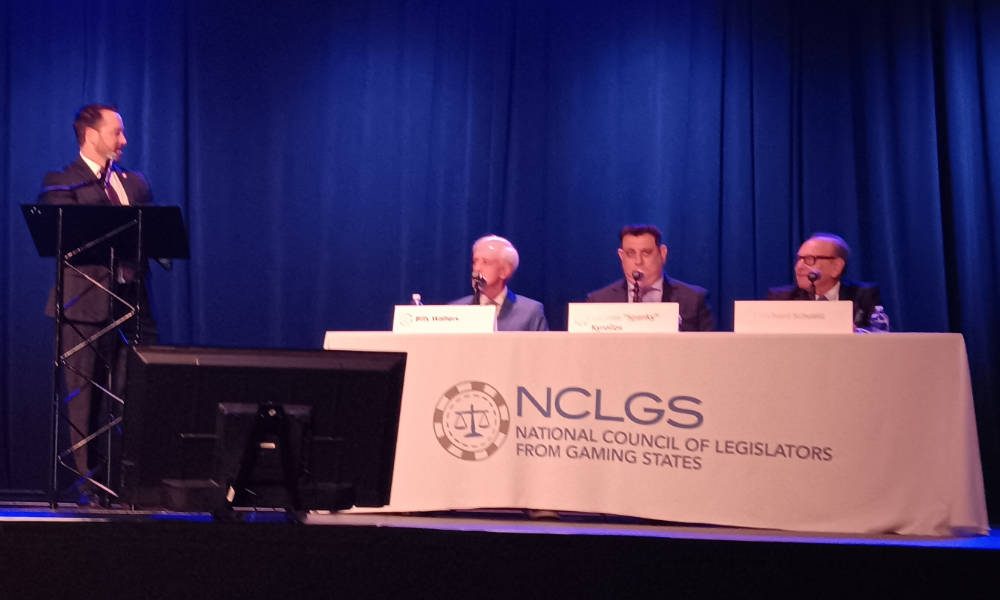The roster for the National Council of Legislators From Gaming States’s (NCLGS) panel discussion “Making a Living off the Odds” consisted of two gamblers and a guy who used to take bets.
That lineup was a bit of an outlier last week during the NCLGS Summer Meeting at Rivers Casino in Pittsburgh, where many panel discussions featured elected officials and regulators from gaming control boards.
But gamblers Billy Walters and Gadoon “Spanky” Kyrollos and Richard Schuetz, a longtime casino executive who worked for Las Vegas operations, including the Stratosphere Hotel & Casino, the Stardust Casino & Hotel, and the Frontier Hotel & Casino, among others, provided insights and analyses they claim will benefit sports betting operators.
Walters, author of the memoir Gambler: Secrets from a Life at Risk, said he was encouraged by the repeal of the Professional and Amateur Sports Protection Act in 2018. But six years later, he’s concerned, noting that legislators passed the legislation legalizing sports betting.
“I don’t think anyone with knowledge of sports betting was involved in that process,” Walters said. “… Sports bettors, I think they need to have a voice. The things that I’m really concerned with are legalized sports betting disparities. I think in the United States that we were all born and raised to believe that everyone is treated equally and treated fairly.”
Walters said at the very least, bettors are owed transparency: What are the minimum and maximum wager amounts? What are the true odds? What are the true risks taken when a wager is made?
“Today, there’s no disclosure whatsoever,” Walters said, adding that he thinks most sports bettors presume they are laying 11-10 odds “because that’s been the standard, the stated odds since sports betting began in our country. But in many cases, people are laying 2-1 with some of these propositions (prop bets), and they don’t know it.”
Kyrollos expressed concerns about how successful wagerers are sometimes banned, while less successful wagerers are welcomed. He said there are times when bettors have their limits raised because they are prone to losing. Kyrollos said some bettors are comfortable losing $5,000 wagers.
“He’s happy, it’s not a problem,” Kyrollos said of such bettors. “But he’s identified as unsophisticated, a non-sharp player, a square bettor, whatever you want to call him. And all of a sudden, his limits are raised. It’s that bankrupt model: We’re going to try to bankrupt this individual. He’s getting $100,000 now, when he used to be a $5,000 bettor, a regular guy. But now, all of a sudden, he just became a problem gambler.”
Kyrollos and Walters agreed that if gamblers are successful, they should not be banned. Schuetz noted that when he was president and CEO at the Stardust, Walters was a frequent, and “one of our most important customers” even though “he was smarter than us.”
“If you’re really good at what you do in business, you try and surround yourself with people who are smarter than you,” Schuetz said. “Billy gave us information, and once you have that information, we were in a much better position to manage risk. That’s what it was all about.”


